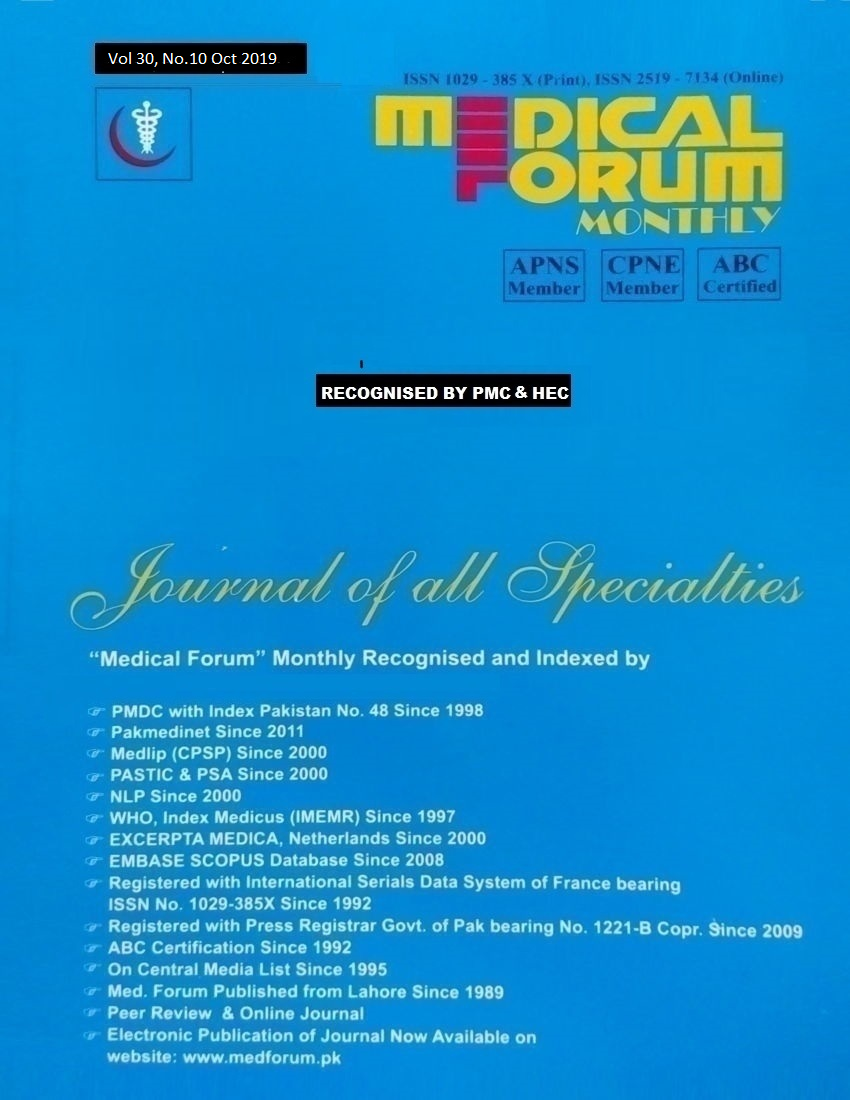
9. Surgical Management of Vesicovaginal Fistula, Single Center Experience at Urology Department Nishtar Medical University Hospital Multan
Mian Muhammad Asif Nawaz, Abdul Ghaffar, Umar Ghaffar and Zainab Javeed
ABSTRACT
Objective: To compare the efficacy of different approaches for repair of vesico-vagino fistula including transvaginal, transabdominal or the combined approach and to document the success rates and the complications of VVF repair.
Study Design:Prospective study.
Place and Duration of Study: The study was conducted at Urology Department Nishtar Medical University and Hospital Multan from October 2018 to April 2019 .
Materials and Methods:A total of 163 women diagnosed with vesico-vaginal fistula (VVF) on cystoscopy who met the inclusion criteria were selected. Transabdominal repair was performed in 111 patients when the fistula site could not be easily accessed per vagina, when VVF was above trigone or when the VVF was complex. Transvaginal repair was performed in 52 patients in cases of simple fistula. These patients were followed for 6 weeks at 2 week time interval. Rates of operative success, infection and recurrent fistula formation were compared. These outcomes were further stratified in respect to age of patient, size of fistula and type of fistula.
Results: Total 163 women having age range from 20 to 60 years with mean age of 38.18 ± 10.64 years. There were increased number of unsuccessful repair in transvaginal repair (17.31%) compared to transabdominal repair (4.5%) (p value 0.007). Stratification of outcomes with respect to age (Table IV) showed statistically significant increase in recurrent fistula formation in age groups 20-40 (p value 0.05) . Stratification with respect to size of fistula showed a significant decrease in infection rate with large fistulas compared to small and medium sized fistulas (p value 0.004). Stratification with respect to type of fistula showed no significant difference in infection rate, recurrent fistula formation or unsuccessful repair in simple or complicated type of fistulas.
Conclusion: This study concluded that the frequency of unsuccessful repair and recurrent fistula is more after vaginal repair compared to abdominal repair while infection rate was more after abdominal repair. Key Words:Vesico-vaginal Fistula, Leakage of urine, trans-vaginal approach, trans-abdominal approach.
Citation of article: Nawaz MMA, Ghaffar A, Ghaffar U, Javeed Z. Surgical management of vesicovaginal fistula, Single center experience at Urology Department Nishtar Medical University Hospital Multan. Med
Forum 2019;(30):36-40.
